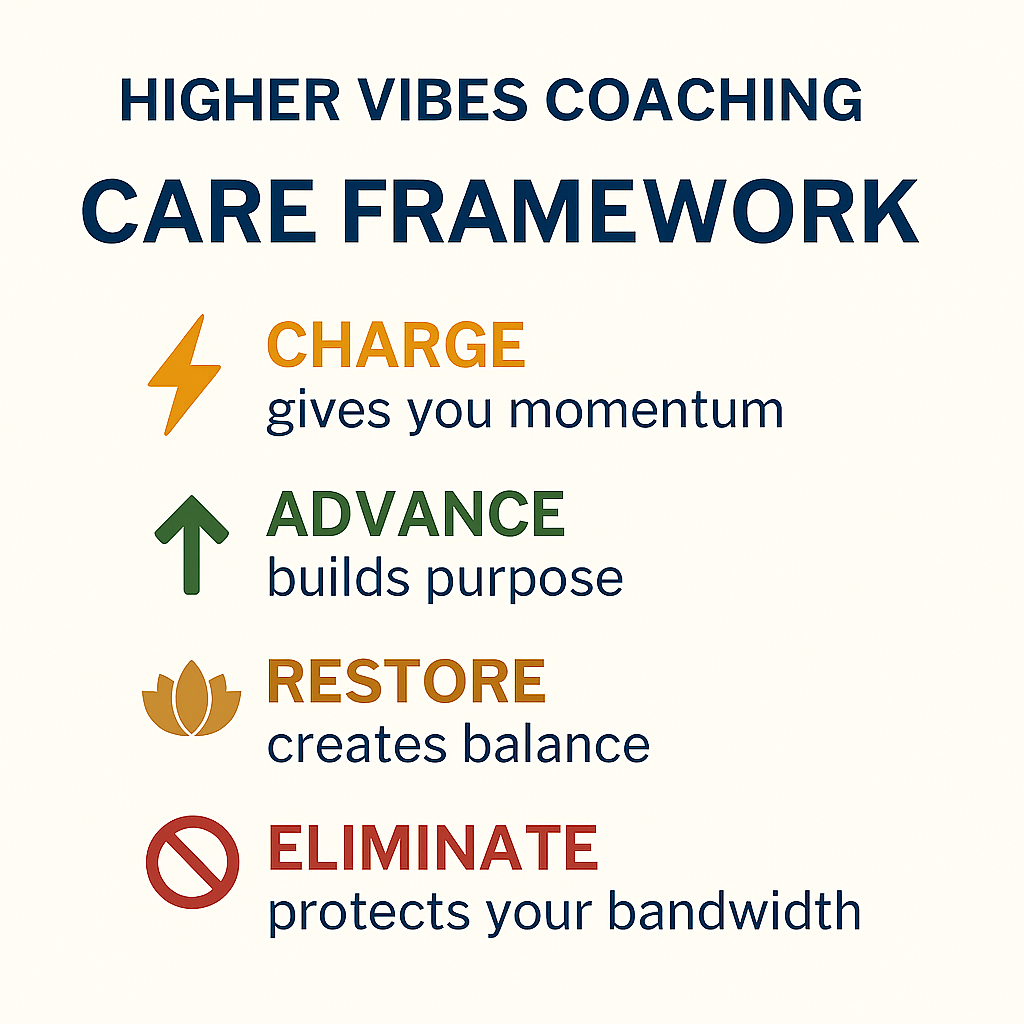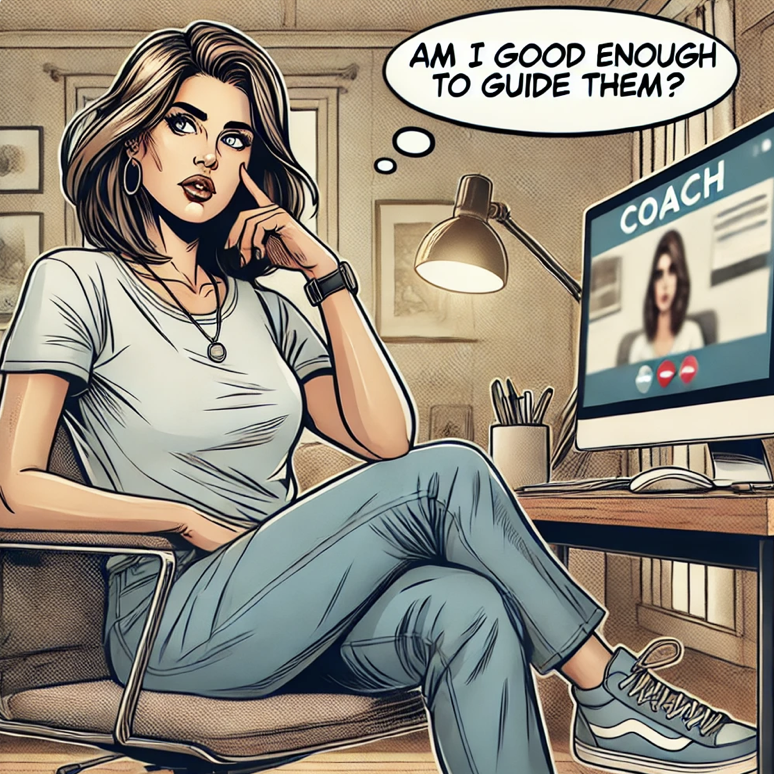Leadership Coaching
Welcome!
I’m an ADHD, Leadership, and Recovery Coach in New York City. I know what it’s like to look impressive on paper while your nervous system quietly falls apart. To keep performing because you don’t know what can happen if you stop.
Before coaching, I spent almost twenty years in brand strategy—pitching ideas to people in better lighting, building campaigns for healthcare giants, pretending the 70-80-hour workweeks were normal. It’s not. But it taught me how humans protect themselves when the system runs on burnout.
My approach blends trauma-informed coaching, neuroscience, and lived experience. I don’t do toxic positivity in our sessions. We keep it real. We’ll also probably laugh much more than you would expect, and swearing is totally acceptable. I am a New Yorker, after all!
What Clients Seek
Achieve Goals: Set and accomplish actionable personal and professional goals, focusing on accountability and sustainable progress.
Improve Habits: Leverage your natural energy cycles to improve time management and overcome substance or process addictions.
Transform Trauma: Turn past traumas into powerful catalysts for growth, shedding old labels and fully embracing your potential.
Build Legacy: Live intentionally by aligning your actions with your core values, creating a meaningful impact that lasts beyond your lifetime.
My Coaching Practice
Each of us has a higher purpose shaped by our seasons, reasons, and lived experiences. Coaching can help you reconnect with who you want to be—and release who you’ve been told to be.
I have specialized training in:
Neurodiversity Support: ADHD, executive function, and autism-friendly coaching for focus, energy, and sustainable systems.
Trauma-Informed Coaching: Compassionate, evidence-based approaches that turn past pain into present power.
Recovery Coaching: Support for healing, resilience, and rebuilding self-trust across mental health, substance use, and relational recovery.
Credentials
ICF-Certified (ACC), awaiting PCC exam
Trauma-Informed and Recovery Coach (TICC, CPRC)
Founder of the Neurodiversity Coaching SIG at ICF NYC
ADHD, trauma-informed, and AI speaker
Over 800 hours and 200 clients
FAQs
-
Please take a look at the Spring Health client welcome page
-
Therapy focuses on healing the past and treating mental-health conditions such as anxiety, depression, or trauma. It helps you process emotions, build insight, and recover from what’s already happened.
Coaching focuses on building the future — creating structure, clarity, and sustainable action. It helps you understand your patterns, manage time and energy, and design systems that support your wellbeing.
-
Coaching is not trauma therapy, but it supports recovery by helping clients rebuild trust in themselves, regulate energy, and create structure after healing work.
It focuses on the present and future, not retelling the trauma — helping clients develop boundaries, routines, and self-leadership that reduce stress and re-triggering.
Coaching complements therapy by integrating growth into daily life, turning insight into sustainable action and greater emotional safety.
-
A trauma-informed coach is trained to support clients facing trauma from systemic racism, sexual violence, health crises, and other life challenges.
Trauma-informed coaching uses the trauma context and client’s unique strengths and values to help them gain momentum who and what they want to be in the future.
A well-trained coach can quickly recognize triggers and provide resources to build resilience while minimizing re-traumatization.
We also teach clients techniques like grounding, breathwork, visualization, and reframing, empowering them to manage triggers independently and with confidence.
-
Whether you’re navigating ADHD, AuDHD, or other neurodivergent experiences, our coaching provides a supportive space where you can fully embrace your strengths and unique ways of thinking and being.
What sets us apart is that our team is not only ND-aware and trauma-informed but also has lived experience, either personally or through immediate family. This deep understanding allows us to create a truly empathetic, informed approach to help you thrive. Some of us also have experience in recovery coaching.
-
Co-Active Training Institute (CTI) — Founded by Henry Kimsey-House and Karen Kimsey-House CTI’s Co-Active model engages logic, emotion, and intuition to expand insight and creativity. A 2010 fMRI study at Case Western Reserve University found that vision-based coaching conversations activate brain regions linked to openness, emotional regulation, and higher cognitive functioning.
Stanford School of Medicine – Center for Compassion and Altruism Research & Education (CCARE) — Directed by Dr. James Doty Dr. Doty’s compassion research explores how empathy and altruism influence brain function and motivation. CCARE’s work underpins how compassion-based coaching supports emotional balance and authentic connection.
Moving The Human Spirit — Founded by Colleen Murphy and Jo-Anne Eadie ICF-accredited trauma-informed coach training that integrates neuroscience and nervous-system regulation. Coaches learn to recognize trauma responses, reduce shame, and foster emotional safety through evidence-based practices.
IAPRC / CPRC – International Association of Professional Recovery Coaches — Founded by Dr. Jean LaCour Certified Professional Recovery Coach training in the neuroscience of recovery, family systems, and sustainable behavior change. Dr. LaCour’s research bridges addiction science and positive psychology to help clients rebuild meaning, purpose, and long-term resilience.
JST Coaching & Training — Founded by Jodi Sleeper-Triplett A pioneer in ADHD and neurodiversity-affirming coaching, JST’s programs are grounded in executive-function and brain-based research. This approach strengthens attention, self-advocacy, and emotional regulation through accessible, strengths-focused methods.
Stanford School of Medicine – Center for Compassion and Altruism Research & Education (CCARE) — Directed by Dr. James Doty Dr. Doty’s compassion research explores how empathy and altruism influence brain function and motivation. CCARE’s work underpins how compassion-based coaching supports emotional balance and authentic connection.
-
Yes: Clients can use AI tools for journaling, organizing ideas, and exploring new perspectives — while avoiding the inclusion of private or identifying details to protect confidentiality.
Yes: Coaches can use AI to create educational materials, reflection prompts, or summarize general, non-identifiable themes that support learning and self-awareness.
No: Coaches uploading or sharing personally identifying client information with AI tools is not permitted and violates ICF ethical standards.
No: Coaches allowing AI to interpret emotions, analyze sessions, or make coaching decisions is not ethical. Coaching outcomes should always be guided by human insight, consent, and professional judgment.
-
What happens in sessions?
Each session connects to your larger 90-day goals and what feels most relevant that week. Common focus areas include:
Managing time, energy, and executive function (especially with ADHD or burnout)
Prioritizing what truly matters — and letting go of what doesn’t
Setting healthy boundaries at work and in relationships
Building self-trust, confidence, and emotional regulation
Recovering from chronic stress, over-functioning, or perfectionism
Navigating behavioral or substance issues in parallel with therapy
Clarifying next steps in your career, leadership, or personal growth
-
Sliding scale for low-income clients
Pro bono for select non-profits description
Free EAP sessions via Spring Health
Testimonials
Education & Resources
Other Resources
Books others have found helpful:
For Coaches
The Coaching Habit: Say Yes, Ask More & Change The Way You Lead Forever, Michael Stanier Bungay
Clean Language: Revealing Metaphors and Opening Minds, Wendy Sullivan & Judy Rees
The HeART of Laser-Focused Coaching: A Revolutionary Approach to Masterful Coaching, Marion Franklin
For Clients & Coaches
Braving the Wilderness: The Quest for True Belonging and the Courage to Stand Alone, Brené Brown
Mother Hunger: How Adult Daughters Can Understand and Heal from Lost Nurturance, Protection, and Guidance, Kelly McDaniel
Playing Big: Practical Wisdom for Women Who Want to Speak Up, Create, and Lead, Tara Mohr
Unbound: A Woman's Guide to Power, Kasia Urbaniak
What Happened to You?, Bruce D. Perry & Oprah Winfrey
The Gift of Fear: Survival Signals That Protect Us From Violence, Gavin de Becker
The Body Keeps the Score: Brain, Mind, and Body in the Healing of Trauma, Bessel van der Kolk M.D.
Mindset: The New Psychology of Success, Carol S. Dweck PhD
Thinking in Bets: Making Smarter Decisions When You Don't Have All the Facts, Annie Duke














